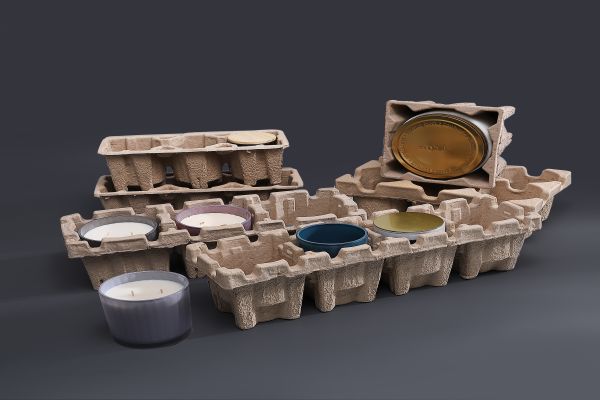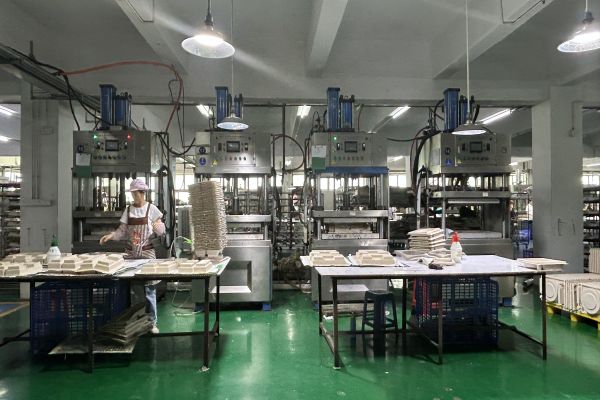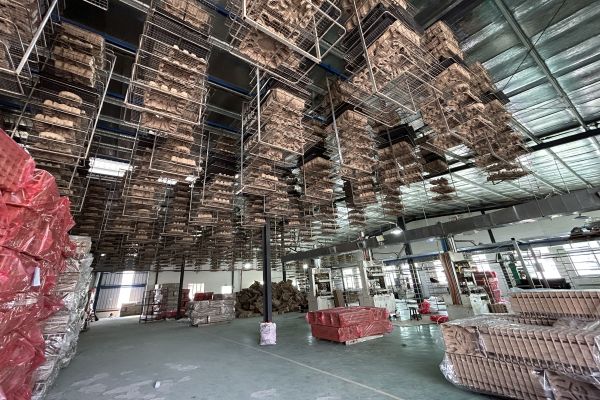In the quest for more sustainable packaging solutions, molded pulp has emerged as a promising alternative to traditional materials like plastic. This eco-friendly material, often derived from recycled paper, offers a range of benefits including recyclability, biodegradability, and renewable sourcing. But is molded pulp truly 100% recyclable? Let's delve deeper into this question and explore the sustainability of molded pulp packaging.
What is Molded Pulp Packaging?
Molded pulp packaging, also known as pulp mold packaging or paper mold pulp, is a versatile and environmentally friendly material used for packaging various products. It is typically made from a mixture of recycled paper, water, and additives such as starch or natural fibers. The pulp mixture is formed into specific shapes using molds and then dried to create rigid and durable packaging solutions.
The Recyclability of Molded Pulp
One of the key advantages of molded pulp packaging is its recyclability. Unlike many other packaging materials, molded pulp can be easily recycled through existing paper recycling processes. After use, molded pulp packaging can be collected, processed, and transformed back into pulp for the production of new packaging or other paper-based products. This closed-loop recycling system helps minimize waste and conserve valuable resources.

Biodegradability and Environmental Benefits
In addition to being recyclable, molded pulp packaging is biodegradable, meaning it can naturally decompose over time when disposed of in composting environments. This inherent biodegradability reduces the environmental impact of packaging waste, particularly in landfills where traditional plastics can persist for hundreds of years. Furthermore, molded pulp is sourced from renewable materials such as recycled paper fibers or sustainably managed forests, making it a more sustainable choice compared to fossil fuel-based plastics.


Challenges and Considerations
While molded pulp packaging offers significant environmental benefits, it is essential to consider some challenges and limitations. Firstly, not all molded pulp products are created equal in terms of recyclability. Some molded pulp items may contain additional coatings or additives that can hinder the recycling process. It is crucial for manufacturers to use recyclable materials and avoid unnecessary additives to ensure the recyclability of molded pulp packaging.Furthermore, the recycling infrastructure for molded pulp packaging varies from region to region. While paper recycling facilities are widespread in many areas, not all facilities may accept molded pulp products or have the necessary equipment to process them efficiently. As such, increasing access to recycling facilities capable of handling molded pulp is essential to maximize its recyclability.
Conclusion
In conclusion, molded pulp packaging is a sustainable and environmentally friendly alternative to traditional packaging materials. Its recyclability, biodegradability, and renewable sourcing make it an attractive option for businesses seeking to reduce their environmental footprint. While challenges exist in ensuring the widespread recyclability of molded pulp, ongoing efforts to improve recycling infrastructure and promote eco-friendly packaging solutions are essential for realizing its full potential in creating a more sustainable future. By prioritizing recyclable materials and investing in recycling infrastructure, we can harness the benefits of molded pulp packaging to minimize waste and protect our planet for future generations.

